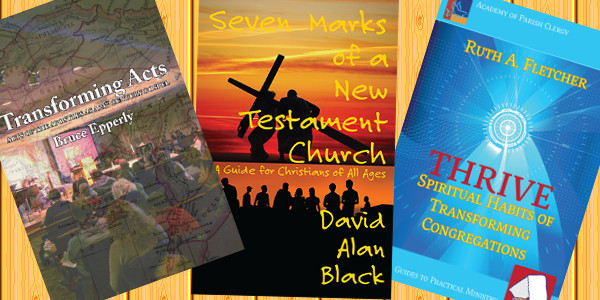Book: Who’s Afraid of the Old Testament God?
In several recent posts, especially dealing with issues of harsh passages in Hebrew scriptures (or the Old Testament), I have referred to a book, Who’s Afraid of the Old Testament God? by Dr. Alden Thompson. This book was critical as I developed my own view of scripture and especially as I dealt with some of the difficult passages. I generally find that Alden’s views are a bit more conservative than mine, and also that he is usually a bit more gentle in presenting them, which is not a bad thing.
I was Alden’s student at Walla Walla College in the years before he first published the book, but we dealt with a number of the same issues in his classes. The book is now in its 4th edition, and I’m now the publisher as the sole owner of the publishing company that now offers this little book. There have been few changes through the editions, except for some adjustments of style and language. I find that new readers find it as relevant today as its first readers did in the early 1980s. Christians have struggled with these types of issues for a long time, and many have either been told not to question or have been given pat answers. Sometimes these answers are given as “offers you can’t refuse.” The attitude is “who are you to question God?” and thus if you don’t accept the explanation your faith is weak, or you may even be an infidel.
Alden takes these issues head on, and finds grace in the Old Testament where others find anger. He doesn’t tell you that you shouldn’t ask such impious questions.
He starts by suggesting that we need to see the Old Testament for itself (Don’t let your New Testament get in the way of your Old Testament), then puts the entire discussion in a Biblical context through discussion of creation and the fall. This is a fairly traditional chapter, and evangelical Christians should find themselves quite comfortable with this outline. He points to the “very good” of Genesis 1 and the “totally evil” of Genesis 6 showing the deterioration of humanity, and then asking how God is to deal with this state of rebellion. He uses the “great controversy” or “cosmic conflict” theme as a background. Some will want to get right to chapter 3, “Whatever happened to Satan in the Old Testament?” and here there is a unique view of the role of Satan in scripture.
Then he gets down to the meat of the problem, successively dealing with the apparently strange laws (Strange people need strange laws), relationships between Israel and the Canaanites (Could you invite a Canaanite home to lunch?), and then the worst story in the Old Testament, Judges 19-21. I’m not sure this is the worst story, but it is certainly an excellent example. Alden applies his approach to questions of why such a story is included in the Bible, why God would allow such things to take place among His people, and what it is that we are to learn from the story. If you haven’t read it, do so now, possibly even starting with Judges 17 (Micah’s Images). If you find it difficult to see God’s grace in action in those chapters, you might find it valuable to read Alden’s discussion–it might transform your view of Old Testament history.
From there Alden turns to “The best story in the Old Testament: The Messiah.” Here he discusses the Messianic prophecies and their application to the ministry of Jesus. Both conservatives and liberals will find some things to question here, because he neither affirms every Old Testament prophecy in the way that many conservative Christians would prefer, nor does he discard the notion of fulfilled prophecy. This chapter in itself is a worthwhile study for anyone who plans to discuss these Old Testament prophecies and their application.
Finally, he deals with the prayers in the Psalms. We tend to read the Psalms a bit selectively, sticking with thoroughly comforting passages. But what about Psalm 137:8-9? How comforting is that? Is such vengefulness Christian? He titles the chapter, “What kind of prayers would you publish if you were God?”
A common theme throughout the book, though it is not addressed head-on, is Biblical inspiration. Why are there things that are this difficult in the Bible if God is trying to communicate with us? How can we be sure of getting truth from the Bible. Alden doesn’t address Biblical inerrancy by that title, but he does look at the process of inspiration and how it works, and helps us find an anchor in the two laws (love God, love neighbor) as presented by Jesus to help us work our way through passages that are difficult to interpret.
I have thoroughly appreciated this book from the time I first read it. I have taught a number of classes using it. I have found that it consistenly is a faith building book. At the same time it is honest, and allows the reader to question and feel confident in doing so. I would especially recommend this to Christians who have never been able to enjoy reading the Hebrew scriptures. It will help you get comfortable reading those passages and letting them speak for themselves.
(Note: In case you missed it at the start, I own Energion Publications, which now publishes this book, so I have a commercial interest in it. As publisher, however, I’m pleased to have it in our line.)



There is a lot in the first half of the Old Testament that is hard to take. The law is not only “strange” but appears terribly harsh to modern eyes, with its death penalties for a large variety of offenses large and small, its acceptance of slavery, and its conception of marriage as something very similar to slavery. The story in Judges 19 may be the most awful in the Old Testament, but it is but a tiny drop in a bucket compared to the divenely ordered genocides of the people of Canaan. And many of the rest of the stories, from Jacob and Esau to the outlaw David, would be indistinguishable from scandalous fiction if they were not included in the Holy Book.
Believers are continually confronted with the task of picking out a few words of inspiration and indirect lessons from this unholy mess. Fortunately, both the Jewish and Christian religious establishments ignore nearly all the Old Testament, picking out a few juicy stories, sugar-coating and truncating many others, avoiding vast sections that are untenable, and making up whole new religions while still pretending to pay lip-service to the original.
We are seeing the mirror image of this approach in the sensational news stories from the Muslim world, of veiled cloistered women, theocratic rule by religious clerics, and death penalties ordered for a variety of crimes from adultery to apostasy. The harshness of Sharia Law, decried by so many politically-oriented Christians, is duplicated by the harshness of the Law in the Old Testament. The real crime of the Islamic Fundamentalists, the source of the putative Clash of Civilizations, is that the Islamic Fundamentalists still take their Holy Law literally, while the Jewish and Christian religious establishments do not.
The Old Testament works best today as ancient literature from a harsh and barbaric time. The Old Testament certainly does not read like the inspired, inerrant, eternal Word of God. It reads much more like a collection of ancient laws, stories, legends and harangues of violent and warlike people. If it is approached as an ancient literary legacy, its gripping if sanguinary stories and some of its poetry can have the salutary effects of regular fiction, like Shakespeare.
But a Christian trying to discern ultimate religious truths from it is like a child trying to gain favor from an abusive parent.
If we were trying to span the spectrum, you just provided the other side. I have to say that while I have found Alden’s material helpful in looking for where God was working in Old Testament times, my personal response to some of the situations is more dismissive. Numbers 31, for example, can hardly be taken as anything other than “this is just bad.” At the same time, Alden doesn’t ask you either to ignore the violent and nasty elements, nor does he ask you to regard them as good. Rather, he asks you to look for where the light is coming through.
I would take potential exception to the “abusive parent” comparison. Certainly, if God actually functions the way many people in those times thought, it would be abusive. But my suggestion would be that they often misapprehended what God was about. At the same time, this is clearly a place that exemplifies YMMV.
The hard right side of the spectrum is represented by David Heddle’s comments to a couple of prior posts and then to the one after this, indicating that if God ordered it, even genocide, it’s OK. That’s a truly frightening attitude.